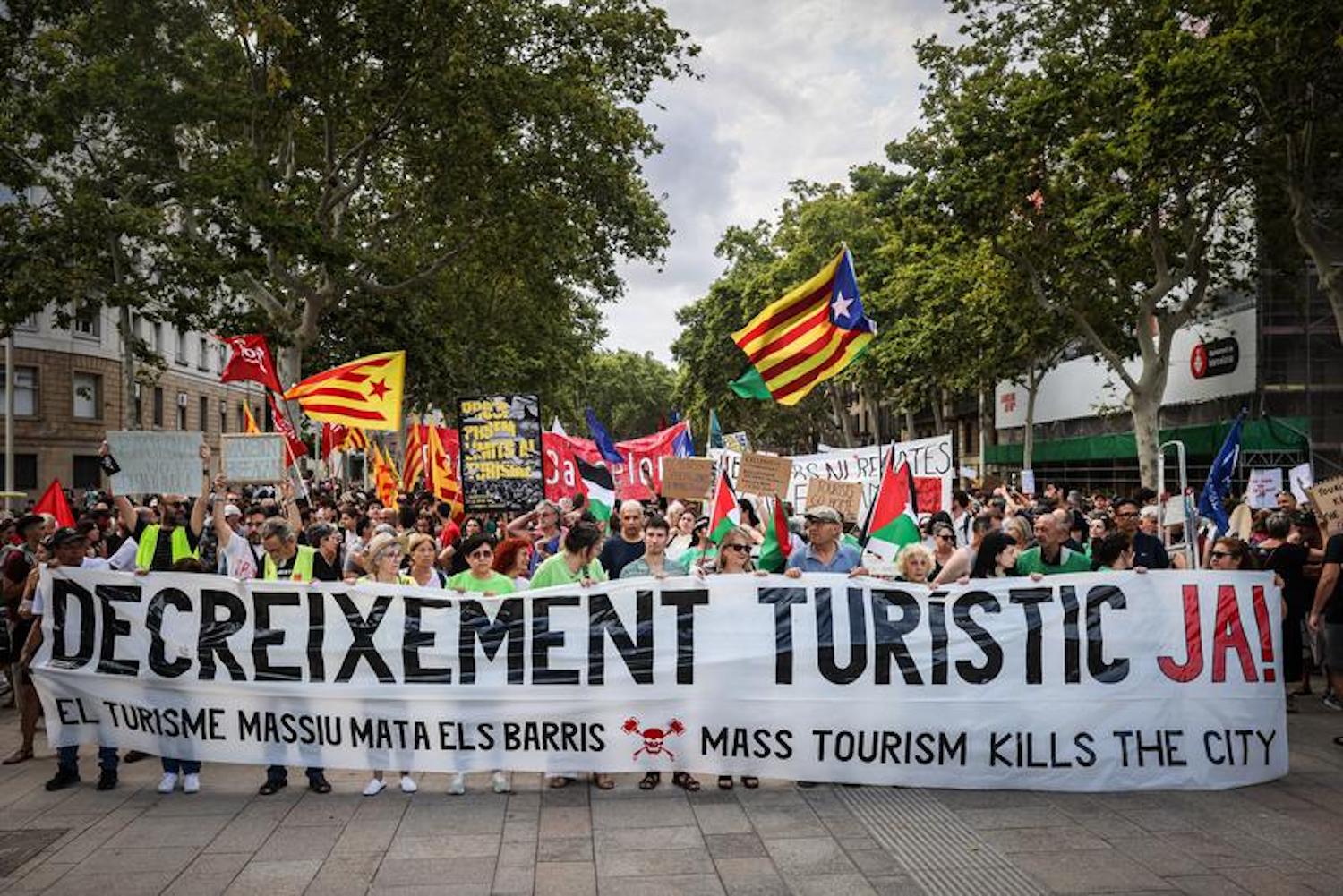In the sweltering heat of mid-July, foreigners pour into Spain like sangria. Last year, the nation hosted a record 85 million visitors, an 18.8% increase over 2022. While tourism has bolstered the Spanish economy and prompted a 16-year low in unemployment, it has also wrecked local housing markets, forcing long-time residents into dire straits.
Perhaps the most abject victim is Barcelona, which spends its summer months hosting 4 million visitors at a time against a population of just 1.6 million. That figure does not include those tourists commuting from city outskirts, nor does it include cruise-goers, who numbered 2.2 million in 2023. With Barcelona hotels at an estimated 80% capacity and summer sun drawing foreigners into the crowded streets of the city, residents have taken the fight against tourism into their own hands.
On Saturday, enraged Barcelonians took to the streets, armed with barricade tape, cardboard signs and water pistols. Their message was concise and served as a grounding chant for the day’s protest: “Tourists go home.”
Over the course of their hours-long demonstration, the local contingent gained strength, reaching 2,800 protestors according to police, and 20,000 according to organizers. The procession targeted tourist-dense areas, and individual visitors, who were sprayed with water and told to leave the country. Venues considered tourist hotspots, like hotels and streetside restaurants, were cordoned off in thick tape and surrounded by demonstrators. “Barcelona is not for sale,” read one sign, dangled over a cafe wall.
The Drinking Culture of Spain
Spaniards have a beverage for every time of dayBesides tourists, the protestors’ focus was on Barcelona’s government, currently led by mayor Jaume Collboni. In a statement last month, Collboni announced that in-city rent had spiked by 68% in the past decade, mirroring a 38% increase in housing prices. In late June, Collboni announced a plan to ban short-term house rentals, a measure he believes will release 10,000 homes into the long-term market. Despite that, the law will not take effect until 2028, and “housing activists argue that the legislation will pave the way for more hotels instead” per NYPost.
Though Collboni has discussed further solutions in balancing Barcelona’s tourist influx against its housing crisis, his inaction paired with his unfavorability has bred resentment. Last year, just weeks after his election, Collboni unwound Pelai Street’s “tactical urbanism” plan, aimed at increasing walkable spaces. Expectedly, Saturday’s protestors bore t-shirts and signs cursing the mayor out, and demanding he act on the ongoing crisis.
Though Barcelona’s problem is unique in scale, the tourist explosion is being grappled with across Spain. Given the nation’s stunning economic growth, the national consensus has been that tourist output must remain the same while housing prices decrease. One way to achieve that is to attract fewer, higher-value tourists. Spain’s growing luxury industry, which has taken root particularly in Madrid, is one avenue to encourage those customers and dissuade those looking for a cheap trip out-of-state. On a micro-scale, Barcelonians have requested that travel apps remove some transport routes from their services, a slapdash fix aimed at reducing oversaturation and keeping tourists sequestered, if not away.
Just weeks into Spain’s peak summer season, the one-sided feud between locals and visitors has reached a boiling point. With water pistols and cardboard shields at the ready, Barcelonians are calling for war in Park Güell, wondering if foreign tourists can hear them from their penthouse suites.
This article was featured in the InsideHook newsletter. Sign up now.
